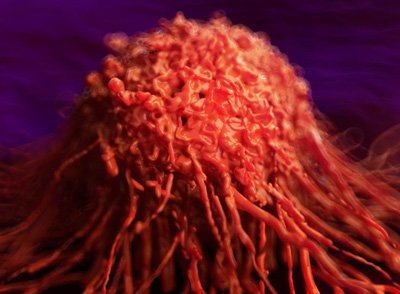Painkiller celecoxib slows cancer growth rate
Posted: 26 May 2016 | Victoria White, Digital Content Producer | No comments yet
Scientists have found that a widely prescribed painkiller, celecoxib, slows the growth rate of a specific kind of cancer in animal models…


Scientists from The Scripps Research Institute (TSRI) have found that a widely prescribed painkiller, celecoxib (Pfizer’s Celebrex), slows the growth rate of a specific kind of cancer in animal models.
Their research also suggests the medication could have the same effect on other types of tumors.
Celecoxib targets an enzyme called “cyclooxygenase-2” (COX-2), which is linked to pain and inflammation. This enzyme is also critical in the creation of prostaglandins, compounds that act like hormones and play a role in promoting tumour growth. COX-2 expression is typically low in normal tissue, but high in multiple types of cancers.
“We were actually interested in determining what a particular signalling pathway does in cancer,” said TSRI Associate Professor Joseph Kissil. “In the process, we found that it activates genes that promote survival of tumour cells and that they do so by turning on enzymes involved in inflammation, including COX2, which anti-inflammatory drugs like Celebrex inhibit.”
Significantly slower tumour growth
The researchers went on to conduct animal studies tracking the effects of celecoxib on the growth of cancer cells from a tumour type known as neurofibromatosis type II (NF2). In humans, NF2 is a relatively rare inherited form of cancer caused by mutations in the anti-tumor gene NF2, which leads to benign tumours of the auditory nerve.
Animals received a daily dose of the drug, and tumour growth was followed by imaging. Analysis of the results showed a significantly slower tumour growth rate in celecoxib-treated models than in controls.
Using various approaches, the new study also showed that a signalling cascade known as the Hippo-YAP pathway is involved in these results and that the protein YAP is required for the proliferation and survival of NF2 cells and tumour formation.
“Our study shows that COX2 inhibitors do have an effect on the tumour cells,” said TSRI Research Associate William Guerrant. “They also have an impact on inflammatory responses that play a role in tumour growth. It’s possible that in other cancers these effects might actually be stronger because of the drug’s impact on inflammation.”
Related topics
Oncology
Related organisations
Pfizer, The Scripps Research Institute (TSRI)


